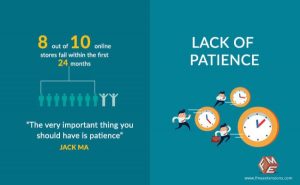4 Questions to a SMB should ask themselves before starting a SEO or SEM campaign.
any digital marketers get this familiar question from business owners: “SEO or SEM?” There are nearly indefinite amount of variables that can determine the best solution. In this article, I will point out some considerable factors that might help a business owner make a decision on either of these two common digital marketing strategies.
 For the sake of this article, I’ll refer to SEO or Search Engine Optimization as organic search on Google. Similarly, for SEM or Search Engine Marketing, I’ll refer to as paid search ads on Google. (Also known as PPC using Google Adwords). Further, to add a little substance to this blogpost, I included a “Winner” or recommendations to variety of different circumstances. This is just a general outlook for what I consider most businesses to fall under. The true outcome depends on a variety of factors that I may or may not have included for each example. If you don’t fall under what I consider “most businesses”, than there might be a different solution than what I recommended. If this is the case for you, I apologize in advance.
For the sake of this article, I’ll refer to SEO or Search Engine Optimization as organic search on Google. Similarly, for SEM or Search Engine Marketing, I’ll refer to as paid search ads on Google. (Also known as PPC using Google Adwords). Further, to add a little substance to this blogpost, I included a “Winner” or recommendations to variety of different circumstances. This is just a general outlook for what I consider most businesses to fall under. The true outcome depends on a variety of factors that I may or may not have included for each example. If you don’t fall under what I consider “most businesses”, than there might be a different solution than what I recommended. If this is the case for you, I apologize in advance.
SEO or SEM??? It is almost impossible to answer this without at least following up with other questions. Below are four basic but important questions that can help with providing a SMB an answer:
1) Goal?:
What is the goal of your digital marketing efforts?
This should not only be a business owner’s first question, but also the most important one that they should ask themselves before contemplating a digital marketing strategy. The more specific an answer you can come up with, the better chance on having a successful marketing campaign. However, if you do create a specific goal, remember that you can’t always get your cake and eat it too. Example: If your goal is to get leads or even more specific, phone calls. Then you should never be focused on other things like web traffic or ranking on the 1st page of google. Instead, your strategy should be increasing the amount of phone calls by X%, then stick with the strategy. Below are typical goals for either a SEO or SEM campaign:
- Leads. Makes sense right? You spend “X” amount of dollars on SEO or SEM, you want to see a return. If you’re purely focused on Leads especially short term, then SEM is most likely your best solution. SEM can provide very accurate conversion/phone tracking solutions. Keep in mind, conversions or lead generation are typically your most expensive SEM campaigns. If you are in a competitive vertical, then the price per lead can be very high. There is a place for SEO as it can work for leads, especially local SEO. However, this more of long term strategy and the lead tracking is not nearly as accurate or convenient to get as SEM. WINNER=SEM. Examples of SEO or SEM Leads:
- Phone calls. Mostly SEM.
- Emails. SEO or SEM.
- Contact Forms. SEO or SEM.
- Walk-ins. Local SEO or SEM.
- Website Traffic. If you want traffic right away, then use SEM. However, if you want an increase of ongoing traffic (long term), SEO is your optimal solution. An onsite SEO strategy increases the content and size of your website. This will have a positive increase in organic traffic. Offsite SEO will increase your link structure, which have a positive influence in your organic traffic and will provide referral traffic from other links. WINNER=SEO. Example of SEO and SEM Website Traffic:
- Organic Traffic. SEO
- Referral Traffic. SEO
- Paid Traffic. SEM
- Organic Traffic. SEO
- 1st Page on Google. If this is your number one goal, then I recommend that you sit back and wonder who else has this goal? If your answer is EVERYBODY, then you’re not too far off. If you have the budget, then you can be on the 1st Page on Google today. However, your return on investment might not be optimal. Depending on the vertical, it can take a very long time and an enormous amount of work to win a first page ranking on Google through SEO. If this must be your goal, then I would focus on less competitive keywords. (Easier wins for SEO, cheaper CPC for SEM). WINNER=Nobody. Might consider finding a different goal. Example of less competitive keywords:
- Services. Do you offer services that are less competitive search terms?
- Products. Do you offer products that are less competitive search terms?
- Your Brand. Name of business.
- Smaller cities. Less competition.
- Services. Do you offer services that are less competitive search terms?
- Targeting. For location targeting like cities, Local SEO can work very well. Yet, this can be quite competitive and there can be many restrictions. With SEM, there area limited amount restrictions. You can target multiple locations and be as specific like zip codes. Other targeting possibilities with SEM include: mobile devices, browsers, and networks. Further, you have time, day, and many other options. In fact, targeting is a reason why many SMB’s choose SEM. WINNER=SEM.
- Branding. This is not a very common strategy for your typical brick and mortar business. However, if you have a brand new or unique product, then your focus might be to just get as many eyeballs or impressions of your business as possible. For SEM, you can easily go after an abundance amount of keywords. Google Adwords makes this very easy because they will give you recommended keywords that will trigger search results. SEO is also important, with creating as much content as possible, you can have a larger chance of organic search results. WINNER=Tie. SEM and SEO branding practices.
- Keyword Matching. This is a service from Google Adwords.
- Keyword Volume. SEM & SEO.
- Content & Blogging. SEO
- Keyword Matching. This is a service from Google Adwords.
2) Budget?
What is your marketing budget?
Once you determine your goal, the total budget should be your next question. Obviously, your goal can greatly determine what you can and can’t do for your SEM and/or SEO budget. The cool thing about SEO is that it doesn’t require a dollar amount if you’re doing it yourself. However, the time and commitment can be enormous. On the other hand, if the adspend is right then SEM can deliver instant results.
- High Budget. Always Do SEM. Do SEO. (Consider outsourcing SEO.)
- Medium Budget. Do SEM. Do SEO. (Maybe outsource SEO or do internally.)
- Low Budget. Don’t Do or Do Limited SEM. Do SEO. (Do SEO internally)
3) Time Frame?
What is the time frame of your goal?
My favorite quote for SEO vs SEM is: “SEO is a marathon. SEM is a sprint.”
What I mean here is that SEO is a long term investment. There is a lot of work involved with SEO and requires ongoing knowledge, specific strategies, and time. There are many variables that determine a successful SEO campaign, one crucial variable that can’t be accurately estimated is the amount of time you receive results. Therefore, if you choose SEO, be prepared for a long haul. Also, the success for SEO can last for a long duration of time, especially if you continue the progress. For SEM, you’re literally buying your placement. Therefore, your results can be nearly instant. Remember, your results stop when your budget runs out.
- Long term. SEO.
- Short term. SEM
4) Industry/Location/Competition?
What industry is your business is in?
Where are you located?
Is your industry and location competitive?
These are the last three questions I typically ask all clients. The answers for these questions all similarly impact a SEO or SEM campaign. A competitive market in a metro area most likely means that SEO will be difficult and will take a while and SEM will be expensive. SEO and SEM isn’t a new thing, so it’s logical to assume that your competition is doing one or both of these strategies.
Conclusion:
When answering the question “SEO or SEM?” we should already know the answers to at least the four questions above. Nearly everything boils down to what your goal is. This is by far the most important factor for any SEO or SEM campaign. If you don’t answer this first, then you are bound to waste time and money with whichever marketing campaign you choose to do. Once you establish a goal, the next three questions will help you identify a digital direction for your marketing campaign and you’ll have a better idea of using either: SEO, SEM, or both.
Bonus:
How is your Website?: If your website is old and outdated, then updating this should be your first priority before considering SEO or SEM campaign.
Hire a Professional: If you have the budget, why not hire a professional? You should strongly consider investing in this especially, if you are in a competitive vertical.
Research Up Front: SEO takes too long and SEM costs money to “figure things out” on the go. Read blogposts like this one, ask others, learn SEO and SEM, and know your competition before starting a digital marketing strategy.
Digital Marketing doesn’t end with SEO or SEM: Don’t get trapped in doing what everyone else is doing. Look for opportunities! Email Marketing, Social Media, Display, Chat, Video, there are numerous opportunities in the digital marketing space.
This article was originally posted on the SmartReach Digital blog.
(190)








